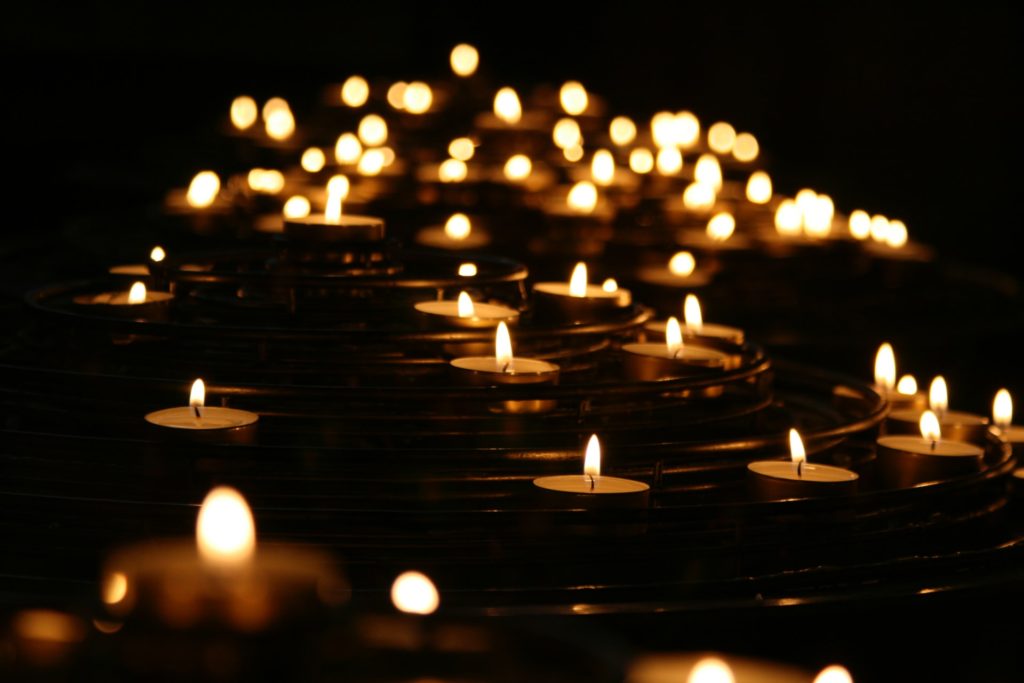The concept of the relationship between spirituality and suicide is often the most complex one in many religions. They both are the extreme ends of a person’s life. Spirituality and suicide have opposite concepts. When it comes to understanding the meaning of spirituality it is finding the meaning of life. The meaning is based on which you can able to live your life. Finding something that gives you light in complete darkness. However, suicide is completely the opposite. It is taking off one’s life when you can’t find the meaning of living or you can’t stand the suffering in life and it is too painful for you. It is surrounding yourself with the complete darkness that you are not able to find any hope of light, lost in negativity and suffering that is unfortunately caused by thoughts that are not who you are. Both of these concepts fit differently in various cultures. The idea of spirituality and suicide is something that varies from religion to religion. When we’re talking for example on two of the main religions that we have, Islam and Christianity, both of them condemn the concept of suicide and praise the concept of spirituality. In Islam suicide has been strictly prohibited. This is because the life that God has given you is a gift from him taking it away by your own choice isn’t right. The same goes for suicide in Christianity, where it is also being condemned.
The Concept of Spirituality and Suicide in Various Religions
In Christianity, if we talk about suicide Dante has expressed his negative impression towards it. Dante had put murder and suicide as a sin in the life of a man. A person gets suicidal when there is no easy way out. A person self-harm and destruct himself. The idea of self-harm and destruction leads to suicide. In Christianity, Dante discussed suicide which is directly linked with a strong and a big sin. On the other hand, Islam forbids the idea of suicide because in the darkest times you have to turn to God and ask a ray of light from him rather than taking your life instead. Spirituality and suicide is something that can’t be prevented. If a person turns himself towards spirituality he or she escape the idea of reality. All he thinks about spending his or her time in the soul searching. He leaves all his relations and moves towards a journey where he only wants to find a way to make a relation with his God.
Religious Challenges That Has Been Faced To Accept Loved One’s Suicide
As we all are aware of the fact that spirituality and suicide are completely opposite ends, therefore different religions have a different perspective towards it. Both of them are discussed in a different point of view. However, if we specifically talk about suicide in most religions it is being condemned. If a person does suicide it is hard for people to accept it. His or her loved ones carry a barrier to accept the death of a suicidal person. This does not happen because his or her loved ones have different points of view but it is because their religion does not allow them to accept the fact of suicide. People face different religious challenges to accept that their loved ones have committed suicide. The challenges that people face due to their religion to accept the idea of suicide when their loved ones do it are extremely hard. For a person of faith, accepting the suicide of a close person is a process that is almost impossible to do, therefore it bears a lot of pain in it. But, are there any other perceptions of suicide in different religions? Are there more religious perspectives about life and death?
Religious Challenges to Accept Suicide in Hinduism
In Hinduism, the concept of spirituality and suicide is also present, as when a person commits suicide it is not spiritually acceptable. This is because life is a gift. In Hinduism, if a person takes his life it is considered as breaking the code of Ahimsa. Therefore it is regarded as if the person has done a sinful act. On the other hand, in Hinduism, the religious scriptures say that if a person does commit suicide he becomes a ghost. He wanders around the earth and the sky but could not find the place where he is supposed to be. Moreover, they say that if a person does suicide he will wander the earth until he dies of anything other than suicide or any other violent act. On the other hand in Hinduism, they accept the idea if a person wanting to take his life. But it is based on different conditions. In Hinduism, a person can take his life without any sort of violence.
The Concept of Prayopavesa in Hinduism
In Hinduism, a person can take his life through non-violation acts. It is taking one’s life by fasting to death. The concept is usually done by old yogis. These yogis spend all of their lives in spirituality so they link spirituality and suicide together. As they believe that they have no responsibility and desire to live as they had found their God. Dying in war is another example of Paryopavesa.
Religious Challenges to Accept Suicide in Jainism
In the ancient Indian religion of Jainism, the concept of suicide is also forbidden. Therefore the people who are following certain religions also don’t accept when their loved ones commit suicide. In Jainism, it is considered as one of the worst and bitter forms of Himsa. Himsa is considered equal to violence. Therefore it is prohibited. On the other hand, the approval for Ahimsa is given. It is taking life by a non-violent act. It is done when a person spends and devotes his life to God. He praises him and prays to him and fast. The fast is done until the body gets thin. It is not considered as a suicide in Jainism because they believe that it is done due to a devotion to one’s God.
Religious Challenges to Accept Suicide in Islam
In Islam, the concept of suicide is forbidden in all aspects. Taking one’s life by himself is considered as a sin. The idea of suicide is not acceptable in Islam at any cost. Therefore Muslims don’t consider it a rightful act either. The act is forbidden. In Islam, it is being said that even in the darkest time Muslims should pray and ask their God for mercy. They should have hope that their difficulties will pass away. Taking a life is condemned in any manner.
Religious Challenges to Accept Suicide in Christianity
In the Bible, there is no biblical warrant against the people who commit suicide but it is considered as a negative act. The church prays for the person who suicides, so he may find peace. There is a vague explanation regarding suicide in Christianity. Some of the Christianity dominations do not get against suicide however some of them do. On the other hand, Dante in his words clearly stated that suicide is in any way not acceptable.
Religious Challenges to Accept Suicide in Buddhism – And How it is Different
In Buddhism the concept of spirituality and suicide is different. When it comes to life Buddhism claims that a person in his future life gets whatever based on which he had done in the past. This is said to be the doctrine of Karma. In Buddhism, if a person takes his life when he is angry he will have a rebirth with a life that is sorrowful. Similarly, if a person has done well all his life he will get the next life full of blessings. In Buddhism suicide in the form of self-sacrifice may get accepted on certain conditions. A person’s mind, body, and thoughts have a greater impact on an individual’s life in Buddhism. The people who follow Buddhism believe that if their loved ones will commit suicide they will face difficulties in their next life. The difficulties will be based on a persons’ bad deeds. The concept is termed as Maya. If a person wants to break Maya and awaken into awareness he has to follow Noble Eightfold Path.
How Buddhist Soul Cycle Can Help With Religious Challenges of Accepting Loved one’s Suicide
If a person commits suicide his or her loved ones know that he or she will not be coming back to them. However, the concept of Buddhism is a lot different. Buddhists believe in the soul cycle. This means that a person gets rebirth. According to Buddhism, they believe that individuals are having rebirth every single time. They say that whatever actions and deeds a person has done in his or her previous life will be followed by to next life. This can also be termed as Karma. The cycle is continuous. This soul cycle only comes to an end when a person achieves Liberation. A liberation that can be achieved by having insights. Buddhism claims that the soul cycle which is the cycle of rebirth is painful and it occurs now and then to every individual. The rebirth can also be claimed as reincarnation.
The Concept of Rebirth in Buddhism
Buddhism says that the reincarnation necessarily can’t take place in a human form. It depends upon your deeds in your previous life that whatever acts you have done previously will be the consequence of your later life. If a person does good deeds he will be blessed with a good physical form. The reincarnation can be done in the form of six realms which in Buddhism can be called Gati. The realms are Deva which means as heavenly, Asura which means demigod, Manusya which is termed as coming in the form of human, Tiryak which can be in form of animals, Preta known as ghosts, and the last one as Naraka this means related with hell.
Conclusion
Though these rebirth theories are seen differently in various religions like Hinduism and Jainism, when in Buddhism they are a major theme including many books that have been written about the concept of soul cycle (one of the famous ones is The Tibetan Book of Dead); they are providing hope that can not be found in other religions for people who have lost their loved ones due to the act of suicide.
One fascinating case about the soul cycle and what happens in the afterlife is the unbelievable story of Anita Moorjani, which challenges many myths and beliefs that religions have regarding sins and the afterlife.








